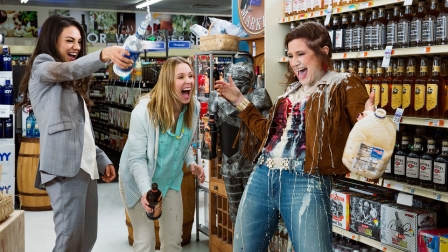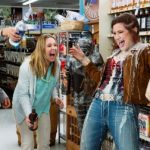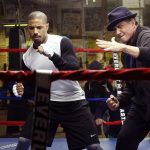“Capital P Producing”: Hollywood Vet Suzanne Todd Bucks Stereotypes, Owns Summers
Thirty years into her career, and Suzanne Todd still has to explain to people what she does for a living.
“The question I get, mostly from friends of my mother, is, ‘What does a producer do?’” Todd says.
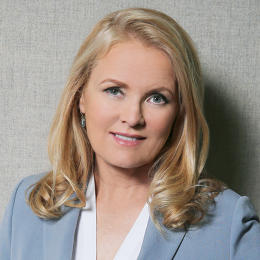
She will admit the confusion is understandable. The proliferation of prefixes like “executive,” “associate,” and “assistant” to the title of producer is often the result of negotiations on the studio’s end to sweeten the pot for financiers with particularly deep pockets. The result is a somewhat muddied job description for Todd. But for anyone in the film industry, her resume of cultural staples speaks for itself: G.I. Jane, Memento, the Austin Powers trilogy, Boiler Room, Now and Then, Across the Universe, just to name a few.
For Todd, it’s about “capital P producing,” meaning there’s no additional noise to what she does—she’s a producer in the purest sense of the word. From preproduction (finding source material and funding for a film, hiring writers, directors, etc.) through to post-production, Todd likens her career to that of a Marine, as she’s the first in and the last out of a project. And this summer has been nothing short of a blitz for Todd, producing the bawdy comedy Bad Moms, as well as the Alice in Wonderland sequel Alice Through the Looking Glass.
“I jokingly say it’s sort of like a part-dictator, part-cheerleader kind of job, but it’s not really a joke—you really have to be on top of everything and on top of everyone,” Todd says. “But then the other side of it that’s equally important is you need to make sure you’re helping to inspire and lift everybody up and keep them in a place where they’re doing their best creative work. The added wrinkle is you need for everybody to be trying to make the same movie, which isn’t always the case.”
Todd’s career path is a surprisingly linear one. She was never a writer, director, or actor who stumbled into producing—she went to the University of Southern California specifically to become that “capital P producer,” an admittedly rare move at the time.
“When I got to film school, there were a lot of guys there who wanted to be a director, but they had never been on a set. They’d never really seen how it breaks down and who does what and what that means,” Todd says. “I think people were really interested in being the director because they thought that meant they were the boss.”
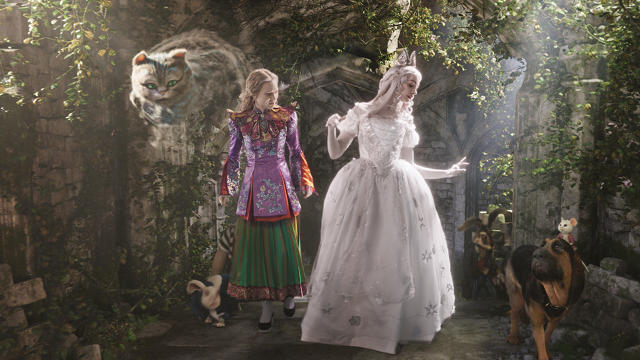
Growing up in L.A. afforded Todd the opportunity to marry her love of film with practical connections. Her best friend’s dad was producer John Foreman (Butch Cassidy and the Sundance Kid, The Great Train Robbery, Up Close & Personal) and her high school boyfriend’s dad was a TV director who got her P.A. work when she was just 16.
Notice a pattern of male influence? As Hollywood continues its slow trudge toward gender and race equality in front of and behind the camera, Todd hasn’t allowed stereotypes and out-and-out sexism deter her film choices. One studio exec famously advised Todd to distance herself from the first Austin Powers film because he felt she was too sweet and nice to deal with such a raunchy film. Trusting her instinct, Todd forged ahead to produce all three Austin Powers films, which have grossed more than $676 million worldwide.
“I’ve had more than one journalist say to me, Why didn’t I just make romantic comedies because I’m a girl? or, Why didn’t I just make family movies because I have three kids?” Todd says.
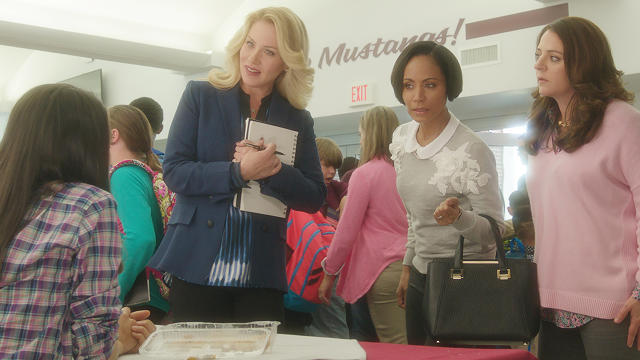
Todd’s eclectic body of work stems from stories that elicit that kid-like wonder that made her want to get into the industry in the first place, or stories that she has a personal connection to. There are times when that connection plays into what some may consider chick flicks, but Todd is only interested in approaching films from a genuine place—whether her projects happen to fall into a preconstructed stereotype is irrelevant.
With Alice Through the Looking Glass, Todd and screenwriter Linda Woolverton were focused on the idea of depicting the preciousness of time. “That was really something that spoke to me—I got excited about my own experiences with that,” Todd says. “I have three children, and now it’s all about that life experience and that [preciousness] we all struggle with.”
And while producing Bad Moms, Todd was focused on flipping the attention toward mothers and giving a voice to the struggle of meeting society’s unrealistic criteria of adequate parenting.
“Obviously not all of us are mothers, but all of us have mothers, and the movie [will help you] realize this is a thing that’s been going on for a long time: women judging themselves and moms judging themselves so harshly and reducing their level of enjoyment of just being mothers,” Todd says. “I hope people come out of it and have these kinds of conversations that I feel like I’ve been having for a long time, which is I want to learn to be less hard on myself. I want to learn to appreciate the things that I do pull off as opposed to the things I mess up. I go to movies and I’m touched in those ways, and I want to try and provide that same experience to other people.”
Todd is also in a position to provide the next generation of producers, particularly young women, with a more current road map of what she used from her mentors growing up.
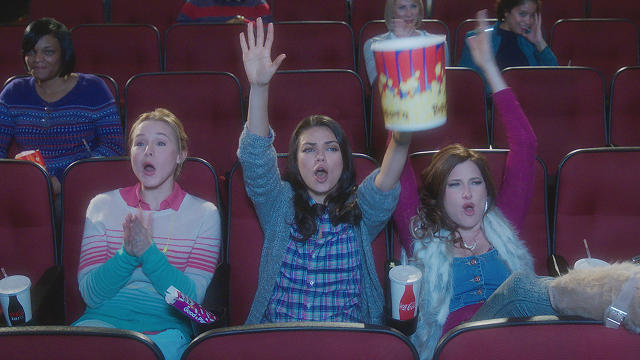
Reading Is Fundamental
“I don’t think people understand how much reading goes along with the job. You’re constantly reading. You’re either reading looking for new material or reading writing samples. If you don’t love to read, you should not pick producing.”
Brush Up On Psychology 101
“I never actually worked as a therapist, but obviously there’s a lot of psychology involved in being a producer and probably all the jobs involved with making movies, because it’s such a weird, collaborative, kind of commerce plus art kind of venture. It’s so different than individual art, like if you were going to paint a painting or sculpt a vase. It’s so unlike that, and yet the art of it is a lot like that. Read as much as you can about people and personal relationships. That’s part of your job, to have everybody get along, and the next, tougher level: to have them do great work together.”
Smile At The Door Slamming In Your Face
“By now I’ve gotten to a place where the doors slamming are the norm—it’s not even surprising to me. But I’m pretty ridiculously optimistic, and I think that’s a good thing, because it’s super easy, especially in Hollywood, to get beat down and feel like you’ve been chewed up and thrown away. It really is like pushing a rock uphill and then it rolls back and squishes you a little every day. If you’re not nuts about making movies, if it’s not in your blood and you can’t not do it, go and do something else.”
Fast Company , Read Full Story
(43)

